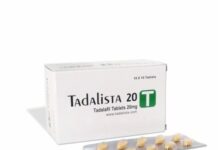Numerous studies on coffee’s effects on different elements of digestion have been published; some have discovered positive consequences, while others have discovered unfavourable outcomes.
Digestion is the coordinated action of several organs that breaks down food and liquids. It is regulated by both blood vessels and hormones. There are numerous outside elements that can affect it. Numerous digestive problems, such as diarrhoea and heartburn, have been treated with coffee, according to certain recommendations. Studies have shown that coffee increases biliary, gastric, and pancreatic secretions. The most effective treatment for ED is Vidalista 60. Dark coffee boosts your mood by energising the essential tactile framework and creating substances.
Both are essential to the digestive system. among the digestive issues:
• GERD (gastrointestinal reflux disease) (GERD)
• Heartburn
• Stomach and duodenal pustules
For some people, it might be painful and uncomfortable. Consuming coffee does not frequently cause heartburn, GERD symptoms, or the development of stomach or duodenal ulcers.
Another problem with digestion is the digestive system’s motility. Finding the right balance between uninterrupted digestion and complete digestion is crucial. Coffee increases the digestive tract’s microbial activity. As a result, there is a lower chance of constipation. However, if you’re interested in learning more about whether coffee helps with digestion, keep reading.
Is Coffee Good for My Digestive System?
• The Effect of Coffee on the Digestive System
In the study, 29% of participants claimed to have evidence linking coffee with movement. When the activity of people’s gastrointestinal processing was measured, the researchers found that both regular and decaffeinated coffee caused contractions in the lower colon within 4 minutes. Additionally, a review of studies found that patients who had just undergone abdominal surgery drank coffee to assist their digestive systems recover. The drink helps patients’ intestines move again after the treatment and promotes recovery of gastrointestinal activity, according to the research.
• Post-Meal Digestivity
Coffee has long been thought of as a digestif, or a beverage that seems to help digestion when drank after a meal, aside from maybe promoting healthy bowel motions. A study revealed how caffeine increases the release of stomach acid, even though the coffee and digestion arguments aren’t strong enough to claim the beverage can assist break down meals more effectively. Stomach acid, on the other hand, is necessary for protein digestion. According to the study, caffeine and an expanding circulatory system are related. Fildena 100 is one of the easiest erectile dysfunction medications.
Coffee consumption might potentially have a long-term beneficial impact on gut health. A study in the Nutrients journal discovered that polyphenol plant components, like those in coffee, promote healthy gut flora while suppressing the growth of pathogenic bacteria.
• Dyspepsia
Given that caffeine also relaxes the esophageal sphincter, which separates the oesophagus from the stomach, the stimulant’s ability to produce gastric acid can be detrimental when it comes to coffee’s impact on digestion, according to Harvard Publishing. This double whammy can make people more prone to acid reflux, indigestion, and dyspepsia symptoms.
It’s also a good idea to moderate your coffee consumption if you suffer from a condition that makes your stomach more sensitive. The Colitis and Crohn’s Foundation advises persons with IBD (Inflammatory Bowel Disease) and IBD (Irritable Bowel Syndrome) to stay away from caffeine-containing beverages like coffee when they are having an outburst.
• Coffee is a staple in the diets of many people.
Coffee is one of the most popular and most studied foods, and it is consumed by a sizable population worldwide. Trigonelline, diterpenes, chlorogenic acid, caffeine, and cafestol are all found. With these substances, coffee’s physiological disturbance is enhanced. One of coffee’s main pharmacologically active ingredients and a stimulant of the nervous system is caffeine.
• Appropriate Coffee Consumption Levels
According to the European Food Safety Authority (EFSA), as long as you maintain an active lifestyle and a balanced diet, you can consume up to 400 mg of caffeine per day, or around 5 cups. For women who are nursing or pregnant, the recommended daily caffeine intake is 200 mg.
The two most notable health-promoting substances in coffee are chlorogenic acid and caffeic acid. The amount of polyphenols in coffee is 2.5 times more than that in tea. Numerous health advantages of polyphenols appear to be contingent on gut microbes’ absorption of these substantial substances. For health reasons and to improve your consumption of chlorogenic acid, it is recommended that you drink four cups of coffee every day. It is not necessary, but in my opinion, it is a crucial component of a balanced diet.
Although we are unsure whether coffee is healthy or not, you can speak with a specialist. If you think that coffee affects your digestion, you can find out more by talking to a gastroenterologist in Lahore. Through, you can make a consultation with one of the top gastroenterologists in Lahore.
What impact does coffee have on the digestive system?
Coffee’s diuretic properties make you want to urinate more often. As a result, drinking unsweetened black coffee eliminates all poisons and bacteria. This facilitates food absorption.
Does Coffee Work to Lower Stomach Acid?
Coffee is less acidic than a number of common meals, including tomato (4.3) and orange juice, and has a similar acidity to watermelons (around 3.7). Coffee’s acidity makes it unlikely to cause your stomach to become acidic.
Does Coffee Help with Bloating?
Since coffee is a diuretic, some people find that it lessens bloating; however, others become hypersensitive to it and suffer the reverse effect. The good news is that a range of herbal teas, many of which are delicious, can help reduce belly bloating. You won’t even want to drink coffee with them.
Visit site: Medslike.com







